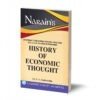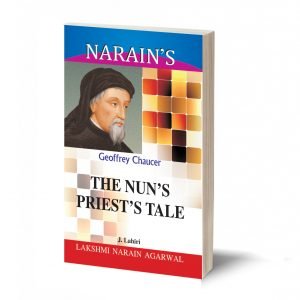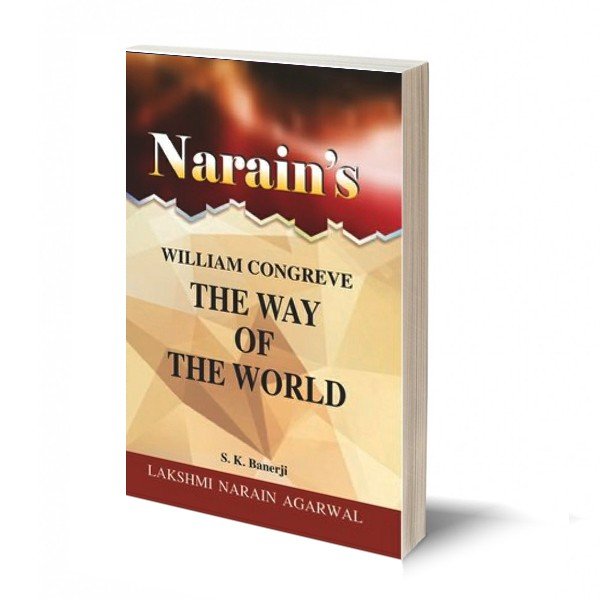History Of Economic Thought -(QUESTIONS AND ANSWERS GUIDE)
₹160.00
History Of Economic Thought – , By – U.C. Kulshreshtha, ISBN Code – 978-93-86241-19-1
It is quite significant for the students of economics to study the development of economic thought from the Biblical era to the present day. But the available books by Indian and foreign writers on the History of Economic Thought are so comprehensive and interpretative that a common student cannot study them easily. Moreover the books of foreign writers do not deal with the Indian Economic Thought which has been prescribed in the syllabus of Indian Universities for M.A and Honors classes. This Refresher Course in ‘History of Economic Thought’ is quite different from other ‘Bazaru’ notes available in the market in three ways: (1) It gives a chronological development of different schools of Economic Thought in the world along with the due emphasis on Indian Economic Thought, (2) It is an simple and lucid language and, therefore, is likely to serve the needs of common post-graduate and Honors students of any Indian University, and (3) This Book contains the syllabus prescribed by different Indian Universities. Besides, the book includes the latest thoughts of foreign and Indian writers.
The chapter wise questions have been carefully selected and answered in a balanced and systematic manner, which can certainly guide students in a proper direction and towards their ultimate and real goal of life.
CONTENTS :
Chapters
- Introduction-—Definition and Scope of History of Economic Thought
Part I. Ancient and Medieval Economic Thought
- Ancient Economic Thought :
The Hebrews, The Greeks and the Romans
- Medieval Economic Thought
Part II. Pre-Classical Economic Thought
- Mercantilism
- Physiocracy
Part III. Classicism
- Adam Smith (The Founder of English Classicism 1723-1790)
- Thomas Robert Malthus (1766-1834)
- David Ricardo (1772-1823)
- Classical Traditionists (J.B. Say and Senior)
- Restatement of Classicism (John Stuart Mill 1806-1873)
Part IV. The Socialists
- Socialism-—Its Genesis and Development
- The Socialist Critics of Classical Economics
(Saint Simon, St. Simonians and Sismondi)
- Utopian and Associative Socialists
(Robert Owen, Charles Fourier, Louis Blanc and Proudhon)
- State Socialism (Rodbertus and Lassalle)
- Scientific Socialism (Karl Marx)
- Communism (Lenin, Stalin and Gorbachov)
Part V. Miscellaneous Thoughts
- The Nationalistic Critics
(Adam Muller and Friedrich List)
- German Historical School
(Roscher, Hildebrand and Schmoller)
- Austrian School of Economics
(Menger, Wieser and Bohm-Bawerk)
- Mathematical School of Economics
(Jevons, Walras and Pareto)
Part VI. Modern Economic Thought
- Neo-Classical Economics
(Alfred Marshall)
- Institutional Economics
(Veblen and Mitchell)
- Welfare Economics (Hobson and A. C. Pigou)
- New Economics (J.M. Keynes)
- Modern Economic Thought (The U.K.)
(Hawtrey, Robertson, Robbins, and J.R. Hicks)
- Modem Economic Thought (The U.S.A.)
(J .B. Clark, Irving Fisher, Schumpeter, Galbraith and Ragnar Nurkse.)
- Other Modem Economic Thinkers
(Wicksteed, Wicksell, Mrs. Robbinson, Edgeworth and Samuelson.)
- Development of Economic Theories
The Theory of Value
The Theory of Rent
The Theory of Wages
The Theory of Interest
The Theory of Profit
The Theory of Trade Cycles
Part VII. Economic Thought in India
- Economic Thought in Ancient and Medieval India
- Economic Thought in Early Modern India
(Dadabhai Naoroji, Mahadev Govind Ranade, Dinshaw Edulji Wacha, Rarnesh Chandra Dutta, Gopal Krishna Gokhale, and Vaman Govind Kale)
- Economic Thought in Modem India
(R. K. Mukherjee and J. K. Mehta)
- Gandhian Economics (Mahatma Gandhi)
- Jawaharlal Nehru
- Acharya Vinoba Bhave
Appendix :
Economic Thinkers and their Works at a Glance
Objective Questions with Answers
Description
History Of Economic Thought – , By – U.C. Kulshreshtha, ISBN Code – 978-93-86241-19-1
It is quite significant for the students of economics to study the development of economic thought from the Biblical era to the present day. But the available books by Indian and foreign writers on the History of Economic Thought are so comprehensive and interpretative that a common student cannot study them easily. Moreover the books of foreign writers do not deal with the Indian Economic Thought which has been prescribed in the syllabus of Indian Universities for M.A and Honors classes. This Refresher Course in ‘History of Economic Thought’ is quite different from other ‘Bazaru’ notes available in the market in three ways: (1) It gives a chronological development of different schools of Economic Thought in the world along with the due emphasis on Indian Economic Thought, (2) It is an simple and lucid language and, therefore, is likely to serve the needs of common post-graduate and Honors students of any Indian University, and (3) This Book contains the syllabus prescribed by different Indian Universities. Besides, the book includes the latest thoughts of foreign and Indian writers.
The chapter wise questions have been carefully selected and answered in a balanced and systematic manner, which can certainly guide students in a proper direction and towards their ultimate and real goal of life.
CONTENTS :
Chapters
- Introduction-—Definition and Scope of History of Economic Thought
Part I. Ancient and Medieval Economic Thought
- Ancient Economic Thought :
The Hebrews, The Greeks and the Romans
- Medieval Economic Thought
Part II. Pre-Classical Economic Thought
- Mercantilism
- Physiocracy
Part III. Classicism
- Adam Smith (The Founder of English Classicism 1723-1790)
- Thomas Robert Malthus (1766-1834)
- David Ricardo (1772-1823)
- Classical Traditionists (J.B. Say and Senior)
- Restatement of Classicism (John Stuart Mill 1806-1873)
Part IV. The Socialists
- Socialism-—Its Genesis and Development
- The Socialist Critics of Classical Economics
(Saint Simon, St. Simonians and Sismondi)
- Utopian and Associative Socialists
(Robert Owen, Charles Fourier, Louis Blanc and Proudhon)
- State Socialism (Rodbertus and Lassalle)
- Scientific Socialism (Karl Marx)
- Communism (Lenin, Stalin and Gorbachov)
Part V. Miscellaneous Thoughts
- The Nationalistic Critics
(Adam Muller and Friedrich List)
- German Historical School
(Roscher, Hildebrand and Schmoller)
- Austrian School of Economics
(Menger, Wieser and Bohm-Bawerk)
- Mathematical School of Economics
(Jevons, Walras and Pareto)
Part VI. Modern Economic Thought
- Neo-Classical Economics
(Alfred Marshall)
- Institutional Economics
(Veblen and Mitchell)
- Welfare Economics (Hobson and A. C. Pigou)
- New Economics (J.M. Keynes)
- Modern Economic Thought (The U.K.)
(Hawtrey, Robertson, Robbins, and J.R. Hicks)
- Modem Economic Thought (The U.S.A.)
(J .B. Clark, Irving Fisher, Schumpeter, Galbraith and Ragnar Nurkse.)
- Other Modem Economic Thinkers
(Wicksteed, Wicksell, Mrs. Robbinson, Edgeworth and Samuelson.)
- Development of Economic Theories
The Theory of Value
The Theory of Rent
The Theory of Wages
The Theory of Interest
The Theory of Profit
The Theory of Trade Cycles
Part VII. Economic Thought in India
- Economic Thought in Ancient and Medieval India
- Economic Thought in Early Modern India
(Dadabhai Naoroji, Mahadev Govind Ranade, Dinshaw Edulji Wacha, Rarnesh Chandra Dutta, Gopal Krishna Gokhale, and Vaman Govind Kale)
- Economic Thought in Modem India
(R. K. Mukherjee and J. K. Mehta)
- Gandhian Economics (Mahatma Gandhi)
- Jawaharlal Nehru
- Acharya Vinoba Bhave
Appendix :
Economic Thinkers and their Works at a Glance
Objective Questions with Answers
Additional information
| Weight | 0.4 kg |
|---|---|
| Dimensions | 22 × 14 × 2 cm |










Reviews
There are no reviews yet.